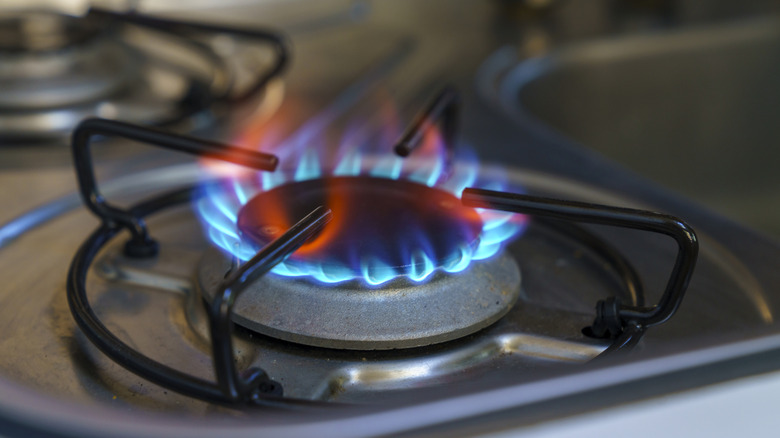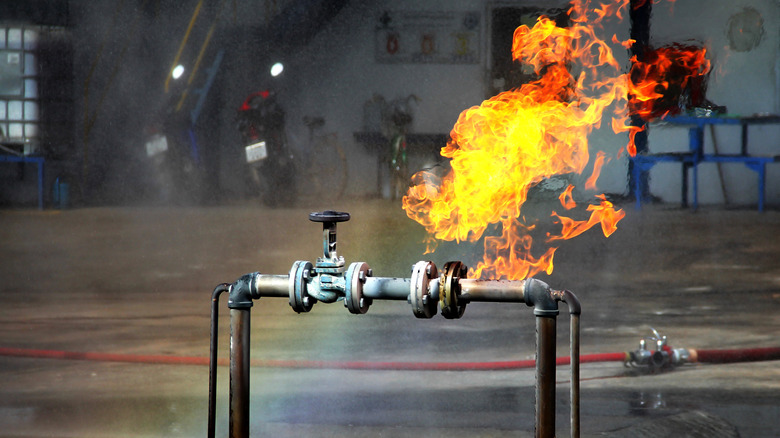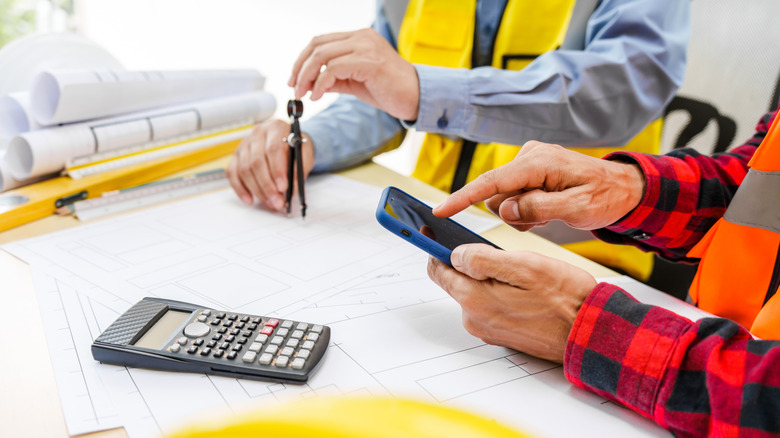The Biggest Downsides To Installing A Gas Line (And If It's Right For You)
Considering a new gas line for your home is a decision many homeowners face, and for good reason. Natural gas is a popular energy source thanks to its efficiency and cost-effectiveness, providing instant heat for appliances such as furnaces and stoves. According to the U.S. Energy Information Administration, more than half of U.S. homes rely on natural gas as a fuel source, especially because it offers precise temperature control when cooking on a gas range and the ability to dry clothes faster and more economically with a gas dryer. But there's a lot you should know before installing a gas line in your home, including some downsides to doing so.
Regardless of whether you want to add a gas line to a new build or retrofit an older home, we heartily recommend abandoning the do-it-yourself approach. Installing gas lines is a serious, complex undertaking that requires specialized knowledge and tools; a mistake during installation could lead to severe consequences, such as property damage, injury, or worse. The risks involved are far too great to be handled by anyone other than a trained professional, so the decision to install a gas line should involve hiring a licensed, reputable gas fitter to do it for you. This single choice is the only way to ensure the project is completed safely and correctly from the jump, even if it means paying to have a gas line installed.
The serious risks of handling gas lines
Handling natural gas is inherently dangerous, and improper handling or installation of gas lines can lead to catastrophic results if you are not a trained professional. Even the slightest error in connecting pipes, fittings, or valves can easily compromise a system's overall integrity. Gas leaks of any size pose a huge risk of fire and explosion from even a single spark. The problem with these leaks is that many can also go undetected and slowly fill a space with combustible gas until a static charge or flame ignites it.
What's more, the danger is not limited to just fire and explosion risks. Improperly vented gas appliances or those with a faulty hookup can produce another deadly threat: carbon monoxide poisoning. This odorless, colorless gas replaces necessary oxygen in the blood, leading to symptoms that mimic the flu. It can even be fatal with sustained exposure.
The best way to mitigate these life-threatening risks is to have a registered and licensed gas installer handle your home's gas line installation. These professionals have undergone rigorous training and have all the right tools and knowledge to install a gas line and test for leaks. They also are the ones who will have access to all the specialized, sensitive equipment needed to do that. Testing is another a huge part of the process, and something only the pros can properly do, although there is an indoor plant warning sign that could indicate a gas leak. Relying on a professional is the best way to ensure every piece of the line is installed and sealed properly, and thoroughly tested for your peace of mind.
Codes, permits, and licensing, oh my!
Installing a gas line isn't just a physical task, it's a legal one as well with a complex web of local, regional, and national regulations you must comply with. While they may seem daunting or even annoying, these regulations are designed to ensure safety and dictate everything from the type of piping materials you can use to the required pressure testing procedures.
Depending on where you live, you will need to apply for and obtain specific permits before any work begins. These permits serve as a safeguard by ensuring that a professional inspector from your city or county will review the safety and integrity of the work performed. Without permits, you could face legal issues, fines, and potentially invalidate your homeowners insurance policy if there's an accident.
These regulations stipulate that the work can only be carried out by a licensed gas fitter. A valid license proves that the individual or company meets strict qualification standards, has passed strict testing, and (most importantly) is insured. It is an assurance of competency and accountability. The cost of a gas line installation permit varies depending on where you live and how big your project is, but a general estimate for the permit alone is between $50 and $300. That's a small investment when you weigh it against the potential for an unsafe installation and non-compliance penalties. In the end, it is a better choice all-around to simply adhere to all codes, secure the needed permits, and hire a licensed professional. They alone can make sure installation is done safely and successfully.


